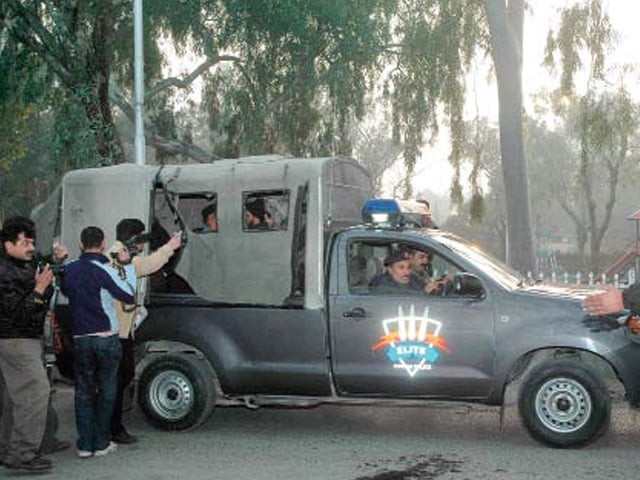Testing ‘religiosity’: Screening of security officials may not bear fruit
Plan is aimed at controlling “a rising trend of radicalisation in security forces”.

The assassination of Punjab governor Salmaan Taseer, by one of his allegedly religiously-motivated security guards belonging to the elite police, has forced authorities to keep a record of law enforcers’ religious inclinations.
Interior Minister Rehman Malik last week told media in Karachi that such a move was under consideration, though he did not give any specific details or timeframe for going ahead with it.
The plan, according to those devising it, is aimed at controlling “a rising trend of radicalisation in Pakistan’s security forces including the army, and lately, the police”.
But a number of officials in the armed forces and departments working under the Strategic Plans Division (SPD) say they do not expect this plan to deliver any results.
According to rules, those joining the military are asked to reveal not only their sectarian affiliation but also their religious inclinations.
In the case of SPD-governed departments including the Pakistan Atomic Energy Commission (PAEC), the would-be employees are asked to fill in an even more detailed document wherein they are bound to mention their religious background, education, sect and their affiliation with any religious organisation.
A number of enquiries by various agencies follow the process, officials added.
Despite all these measures, there have been sporadic incidents of officers and personnel of security forces becoming allies of either the al Qaeda or the Taliban.
The latest among such episodes is Taseer’s killer, Mumtaz Qadri. In the past, there have been several defections from the army and the air force to the radicalised forces.
The system of maintaining record in the military, according to an official, remains ineffective because it was never followed upon.
“Merely having knowledge of the personnel’s religious inclination or sectarian affiliations, cannot ensure that he won’t get radicalised in the future … a follow-up is also required. But it is missing,” he said.
“That’s why there will never be good chances of such a system working in the police,” he added. But analyst Amir Rana, who heads Islamabad-based Pakistan Institute of Peace Studies think tank, said he thought differently.
“If done together with other measures, this can work,” he said.
Published in The Express Tribune, January 12th, 2011.



1724319076-0/Untitled-design-(5)1724319076-0-208x130.webp)















COMMENTS
Comments are moderated and generally will be posted if they are on-topic and not abusive.
For more information, please see our Comments FAQ